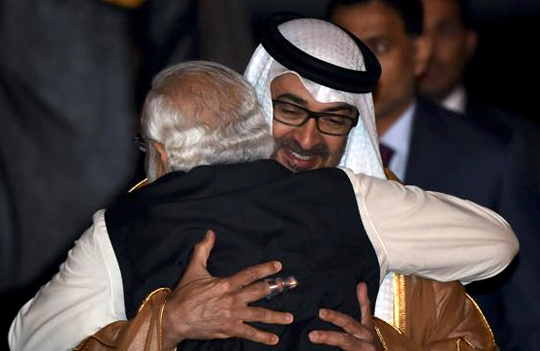New Delhi, Feb 11: In a first of its kind deal, UAE’s national oil company Adnoc has agreed to store crude oil in India’s maiden strategic storage, and give two-third of the oil to it for free.
India, which is 79% dependent on imports to meet its crude oil needs, is building underground storages at Visakhapatnam in Andhra Pradesh and Mangalore and Padur in Karnataka to store about 5.33 million tonnes of crude oil to guard against global price shocks and supply disruptions.
Abu Dhabi National Oil Company (Adnoc) is keen on taking half of the 1.5 million tonnes Mangalore facility, oil minister Dharmendra Pradhan said on Wednesday.
It will stock 0.75 million tonnes, or 6 million barrels, of oil in one compartment of Mangalore facility. Of this, 0.5 million tonnes will belong to India and it can use it in emergencies. Adnoc will use the facility as a warehouse for trading its oil.
The 1.33 million tonnes Visakhapatnam storage, and 2.5 million tonnes Padur stockpile together with 1.5 million tonnes Mangalore storage will be enough to meet nation’s oil requirement of about 10 days.
After talks with visiting UAE minister for energy Suhail Mohammed Al Mazrouei, Pradhan said tax issue remains to be sorted out before Adnoc can begin storing oil at Mangalore.
Congress-ruled Karnataka government has not yet agreed on waiving VAT on the crude oil imported for the strategic storage, which UAE wants to use to stock oil when prices are low and supply to its customers when rates are good.
“This will be beginning of our strategic ties,” he said, adding that Prime Minister Narendra Modi’s visit to UAE in August last year, the first by an Indian Prime Minister in 38 years, laid the foundation of closer cooperation.
The UAE had then committed to invest $75 billion in India, and Pradhan on Wednesday showcased to Mazrouei opportunities for that investment.
“We have offered them refinery projects, petrochemical plans, pipelines and LNG terminals for investment,” he said.
On offer was 26% stake for $700 million in ONGC’s about-to-be-commissioned petrochemical project at Dahej in Gujarat, and 24% equity for $200 million in expansion being planned by BPCL of its subsidiary Bina refinery in Madhya Pradesh from 6 million tonnes to 7.5 million tonnes.
Also, an investment of $530-850 million can get the UAE 25-40% stake in HPCL’s planned petrocehmical plant on the Andhra coast, he said, adding that the Gulf national can also invest in the planned 60 million tonnes in Maharashtra and the Jagdishpur-Haldia and Paradip-Surat gas pipelines.
“UEA makes up for 8% of our oil imports. We are trying to import more oil from UAE. In 2016-17, we plan to import 2.5 million tonnes more oil than current year’s purchase of 16.11 million tonnes,” he said.
Besides Adnoc, Kuwait Petroleum Corp (KPC) too has evinced interest in hiring a part of the maiden strategic storage.







Comments
Dear mangaloreans Tear your passport now and say Goodbye to Gulf Countries, Now you have become Oil Rich Mangaloreans Hats off........... smile please.....
Dubai petrol in India, American nuclear in India. What next? Can we get some safe place to live peacefully ???!!!!
The Hindus are Fooled to fight the muslims but the leaders are just hugging the muslims to worldly gain.. What a POLITICS ! the hindus are FOOLED by cheddis and they are hugging each other.
Dear sharan pumpwell.. please U may need arab support later when u will exhaust from communal riots.. People will fed up and may throw u out of the country to arab lands.. So avoid creating COMMUNAL riots.
Add new comment